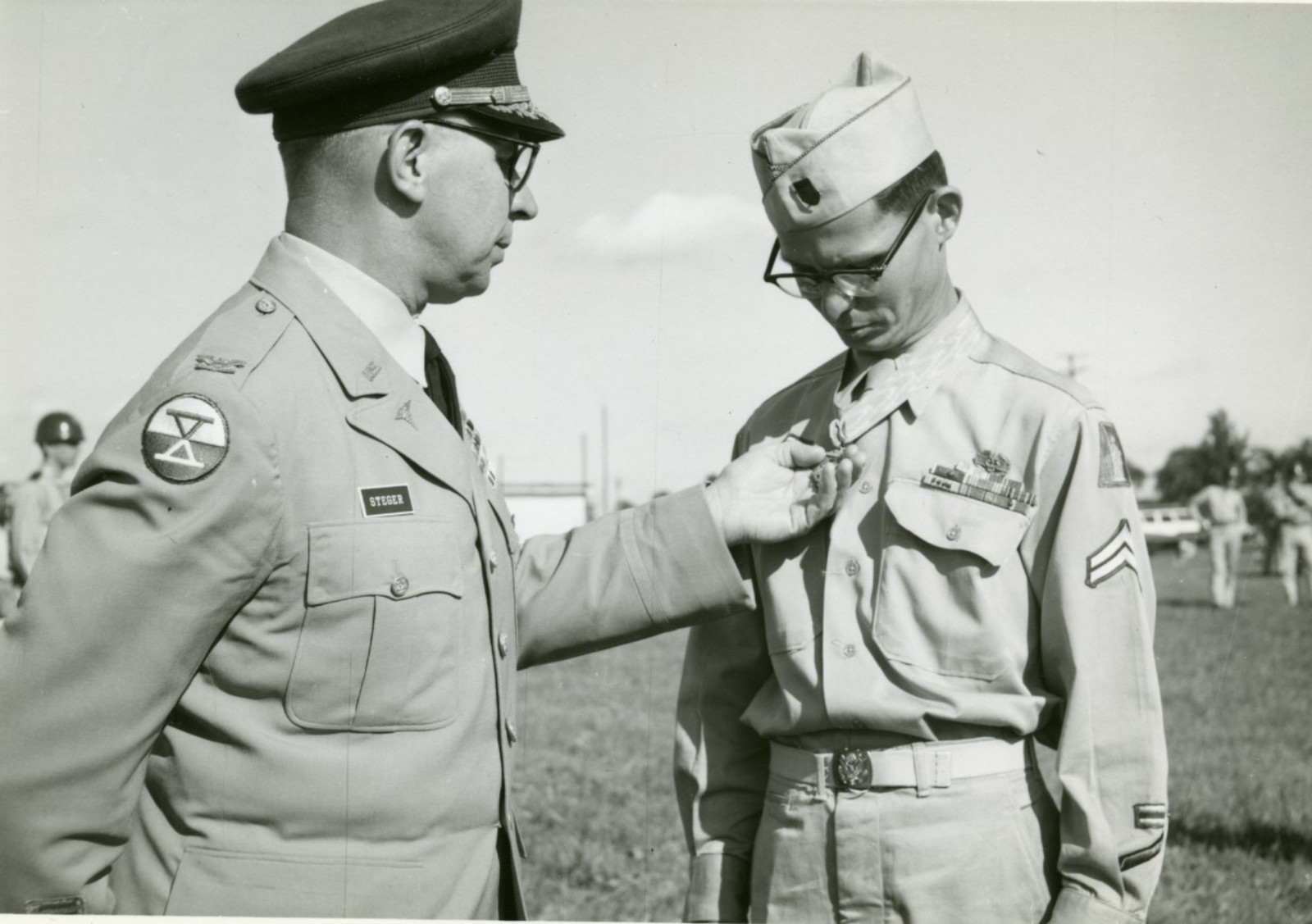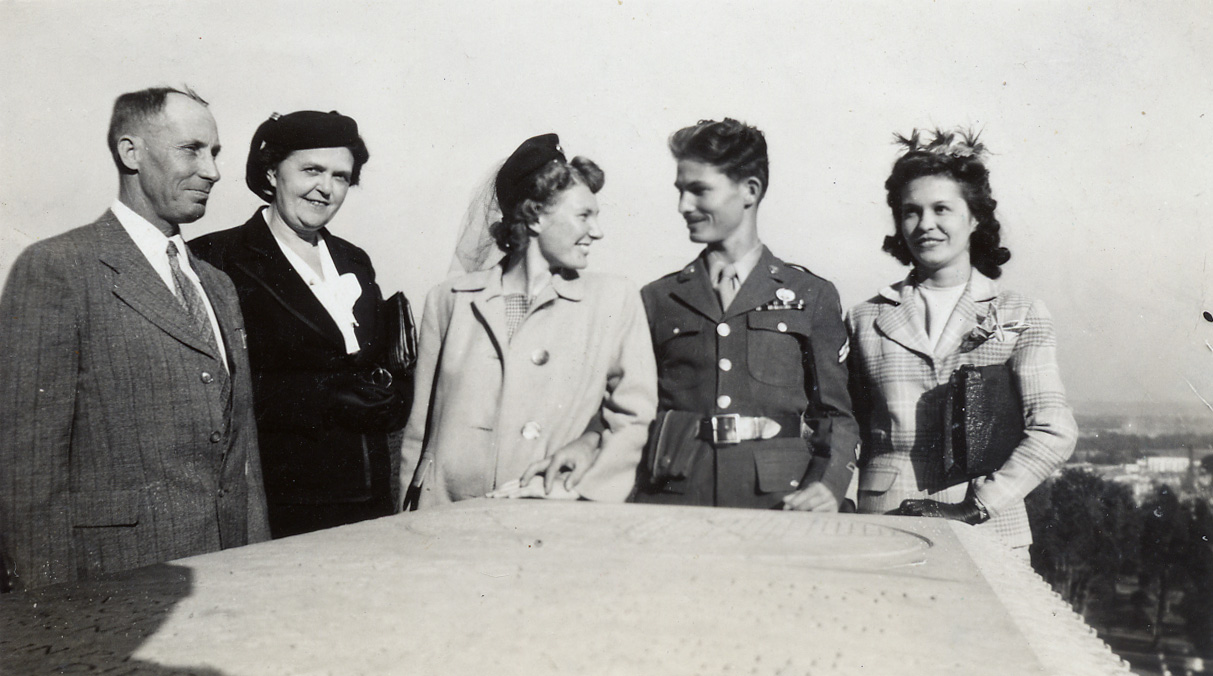:max_bytes(150000):strip_icc():focal(999x0:1001x2)/desmond-doss-wife-1-7a1d0eb9afb14a1a92f3195f592f69bb.jpg)
In the annals of American military history, the name Desmond Doss stands as a beacon of extraordinary courage, selflessness, and unwavering commitment to his fellow soldiers.
Serving as a U.S. Army medic during World War II, Doss is best remembered for his heroic actions during the Battle of Okinawa, where, despite being a conscientious objector, he saved the lives of 75 men without ever carrying a weapon.
His remarkable story, marked by both sacrifice and bravery, highlights the true meaning of heroism and the power of serving others, even in the face of unimaginable danger.
His story serves as an inspiration to all, reminding us that courage is not defined by the weapons we wield, but by the strength of our hearts and the integrity of our actions.
Desmond Doss was born on February 7, 1919, in Lynchburg, Virginia, into a devout Seventh-day Adventist family. His faith played a central role in shaping his character and principles throughout his life.
As a deeply religious man, Doss adhered to the teachings of his faith, which included a firm belief in nonviolence. This belief would later influence one of the most remarkable decisions in his life—the decision to enlist in the U.S. Army during World War II, despite his conscientious objection to bearing arms.
While the notion of serving in the military while rejecting the use of a weapon may seem paradoxical to some, Doss believed that he could still serve his country by helping the wounded without compromising his faith or values.

His decision to enlist was driven by a sense of duty, a desire to help those in need, and the unwavering belief that he could make a difference without resorting to violence.
Doss’s decision to serve as a medic, despite facing harsh criticism and ridicule from both fellow soldiers and officers, marked the beginning of his journey as a hero.
The training process was difficult for Doss, as he was often subjected to mockery and hostility from others who could not understand why he refused to carry a weapon.
However, he remained resolute in his commitment to his beliefs. Doss faced relentless pressure to abandon his principles and join his comrades in carrying rifles, but he refused.
His determination to stand by his convictions, despite the pressure he faced, would become one of the defining traits of his character throughout the war.
On April 29, 1945, during the fierce fighting at the Battle of Okinawa, Doss’s extraordinary courage and selflessness would come to the forefront. The battle was one of the bloodiest of World War II, with intense fighting taking place in the brutal terrain of the island.

The U.S. forces faced fierce resistance from the Japanese army, and casualties mounted as both sides fought with everything they had. Amidst the chaos of battle, Doss’s actions would prove to be nothing short of miraculous.
Doss was assigned to a medical unit on the front lines, where his role was to assist wounded soldiers and evacuate them to safety.
Despite the constant threat of enemy fire, Doss never hesitated to put himself in harm’s way to save others. Over the course of several days, Doss risked his life repeatedly, crawling across the battlefield to drag wounded men to safety.
Without ever firing a weapon, he pulled soldiers to safety, providing them with medical care and ensuring that they were evacuated to the rear lines where they could receive further treatment.
Despite the barrage of bullets and the overwhelming odds, Doss remained undeterred. His courage was matched only by his compassion and sense of duty.
One of the most heroic moments of Doss’s actions occurred when he single-handedly saved 75 men, many of whom had been left behind on the battlefield.

In the midst of constant fire and explosions, Doss did not hesitate to crawl across the battlefield, lifting and dragging men to safety, even when it seemed that the odds were impossible.
He did not ask for recognition or praise; he acted simply because it was the right thing to do. His selflessness and dedication to saving his comrades were qualities that set him apart from others on the battlefield.
For his incredible bravery and sacrifice, Desmond Doss became the first conscientious objector in American history to receive the Medal of Honor. On October 12, 1945, President Harry S. Truman presented Doss with the prestigious award in a ceremony at the White House.
In the citation for the Medal of Honor, Doss was recognized for his courage under fire and his unyielding dedication to saving lives, stating that he had "conspicuously displayed gallantry and intrepidity at the risk of his life above and beyond the call of duty."
Doss’s actions at Okinawa demonstrated that true heroism comes not from the weapon you carry, but from the heart and soul with which you serve others.
Doss’s story transcends the boundaries of military heroism. His faith, determination, and courage in the face of adversity have made him an enduring symbol of the values that define America.

His refusal to carry a weapon, even in the most dangerous of circumstances, serves as a testament to the power of conviction and the strength of character.
Desmond Doss showed the world that heroism does not always involve taking lives or wielding power—it can be found in the quiet, steadfast commitment to protect and save others.
While Doss’s actions during the Battle of Okinawa were extraordinary, his legacy extends beyond that single moment. Throughout his life, Doss remained humble and deeply devoted to his faith, refusing to let the recognition he received detract from the reasons he served in the first place.
He lived out his values with integrity, using his fame to promote peace and compassion rather than seeking the limelight.
His story reminds us that true heroism is not measured by fame or accolades, but by the quiet strength to do what is right, even when the world around you is crumbling.
In the years following the war, Doss’s life continued to be a reflection of the same values that guided him on the battlefield.
After receiving the Medal of Honor, he remained a humble man, and his character was a source of inspiration to all who met him.

He later went on to live a peaceful life with his wife, Dorothy, and his family. Despite the accolades and recognition, Doss remained a man of deep faith and humility, continuing to serve others in the ways that he believed were most important.
Desmond Doss passed away in 2006, but his legacy continues to inspire generations of Americans. His story is a reminder that true heroism is not defined by the weapons we carry or the battles we fight, but by our willingness to sacrifice for others, our commitment to our principles, and our courage to stand firm in the face of adversity.
Doss’s life serves as a beacon of hope and a reminder of the incredible power of the human spirit. He was a hero not because of the medals he wore, but because of the countless lives he saved and the indomitable strength he demonstrated in the face of unimaginable danger.
As we reflect on Desmond Doss’s incredible courage and sacrifice, we are reminded of the enduring values that make America great: honor, service, and selflessness.
Desmond Doss’s story will continue to inspire us to be better, to serve others with dignity, and to never waver in our commitment to doing what is right.
His life and actions remind us that heroism is not about the recognition we receive, but about the difference we make in the lives of others. Desmond Doss is a true American hero, and his legacy will continue to live on for generations to come.
-1750570235-q80.webp)

-1749483799-q80.webp)
-1749481098-q80.webp)